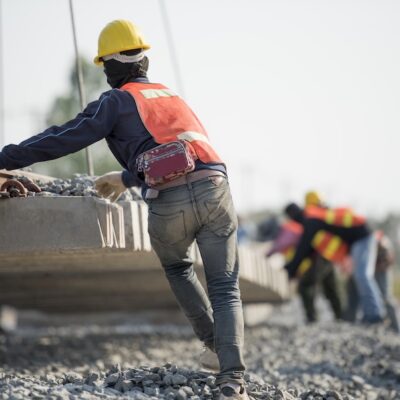Is insurance being used to paper off cracks in workplace compliance?
Nobody wants to end up a test case for the Health and Safety at Work Act 2015 but, just in case, company owners, tradesmen, managers and even home owners are beefing up on their insurance policies.
894
Nobody wants to end up a test case for the Health and Safety at Work Act 2015 but, just in case, company owners, tradesmen, managers and even home owners are beefing up on their insurance policies.
Fire and General Manager for the nation-wide Prosper Group advisory network, Stewart Wright, says he has been inundated with inquiries from worried people who don't understand the legislation and are looking at more insurance as a way to protect themselves against what they don't know.
"I guess you could say that people are trying to insure their way through a bureaucratic minefield."
Wright said nobody really knows what their requirements and responsibilities are under the new Health and Safety at Work Act 2015.
"We've had calls from paint and panel beater shops, clothing manufacturers, landlords and tradesmen, and they're all viewing the act like it's a poisonous snake – but some things they believe they need to do are just too cost prohibitive or not applicable.
"Unfortunately, having the correct liability and indemnity insurances is not a silver bullet, it's just one aspect of what's turning into a stressful and loaded situation for many people. This Act has given birth to a new safety advice industry, increased compliance and cost headaches for people," he said.
Wright said a big part of the problem was making companies and ordinary citizens, like landlords, responsible and legally liable for the behaviour of others – sometimes when those people are nowhere near a particular site, such as a rental property.
Wright said that while he is only able to offer advice from an insurance perspective, his experience with various liability scenarios over the years suggests that there are two steps in the process:
1. Understand the risk to which you are exposed (take expert advice on what those risks may be). For example, if there is gas on the site, or if a neighbour's house is close enough that it might also catch fire if your rental property is burning.
"Make sure you understand the various liabilities, including public liability, statutory liability, employer's liability and professional indemnity that might apply in your situation," he said.
2. Once you have identified what could go wrong, do everything in your power to mitigate those risks. Take advice, discuss and brainstorm possible scenarios and how they can be prevented, managed or insured against.
"By that I don't mean that you need to think like Wilbur Smith and go to the lengths of imagining 50 ways to die, like tenant's brother turns up to repair her car and gets crushed or sets the garage on fire.
"Causes of disaster are many, but actual disasters aren't that numerous — you basically have property damage, property destruction, injury and death. Just the scale differs."
Wright said it's easy to get carried away when it comes to insurances too.
"If you're a painter who paints the odd domestic house, you will find that $1 million worth of liability insurance may be enough. If you paint commercial properties however, that's a whole other scenario.
"In turn, if you're the owner of the property, make sure that your contractors provide proof that they are compliant with the new health and safety regulations, and insist on evidence of the contractor's public liability insurance."
There have always been public liability insurance policies available to contractors, such as accidental damage to a property by a tradesman who, for example, spills paint on the carpet. It's just that many self-employed contractors never use them because they regard them as too expensive and unlikely, so they self insure.
"If you're a property owner, you have responsibility to the people and properties around you. If your house catches fire and burns down the neighbour's house, you could be held legally liable. However, if you have home building insurance worth its salt, that policy should already include property owner's liability cover," Mr Wright said.
For more information, visit www.prosper.org.nz






